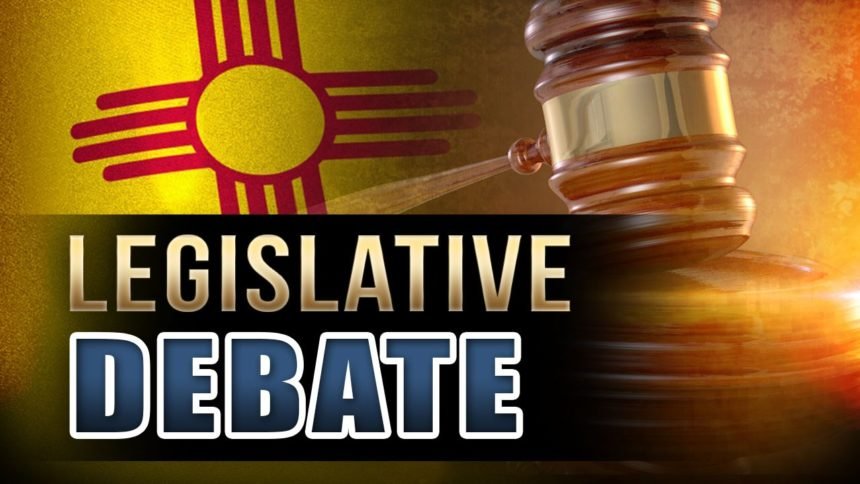New Mexico to consider legal marijuana, tuition-free college when legislative session starts Tuesday

SANTA FE, New Mexico — New Mexico state lawmakers will push plans to legalize marijuana, underwrite tuition-free college, respond to concerns about mass shootings and improve a beleaguered public education system during a 30-day legislative session that begins Tuesday.
Political battle lines are forming on issues ranging from teacher pay increases to a proposed red-flag law from Democrats that would allow police or relatives to ask a court to temporarily take away guns from people who might hurt themselves or others. The gun industry and many rural sheriffs oppose the red-flag proposal as currently written.
State economists are forecasting an $800 million surplus in general fund income for the coming fiscal year over current annual spending obligations, giving lawmakers leeway to possibly expand early childhood schooling, subsidize daycare for more children or pay for a push to enroll more people in medicaid who already qualify. It’s the second consecutive year of windfalls in government revenue linked to surging oil production in the state’s southeast corner.
General fund spending overall would increase by more than 8% to about $7.7 billion, under the governor’s recommendations.
House Republicans are seeking to place new restrictions on spending and tax increases and set up automatic tax rebates when government income surpasses spending obligations.
Minority House Whip Rod Montoya of Farmington says he wants to set up the rebates through a constitutional amendment, called the taxpayer bill of rights, that would also requiring a three-fifths super-majority vote for tax increases in the future.
Wary of an inevitable downturn in oil-related income, House finance committee Chairwoman Patricia Lundstrom said legislators are focusing new spending on programs that can provide evidence of results, while socking away more reserves in a restricted rainy-day fund and a newly proposed trust for early childhood education.
She and House Speaker Brian Egolf are backing a measure to increase funding to school districts in Native American communities by rerouting about $63 million in federal impact aid. The aid is designed to offset financial burdens in school districts with large expanses of nontaxable land overseen by the federal government — including tribal trust land. Native Americans account for one in 10 state residents.
Lawmakers are under sustained pressure to increase educational spending from dissatisfied parents and school districts that have turned in frustration over budget priorities to the state judiciary. A district court judge in 2018 ruled that the state was failing to provide for an adequate education, especially when it comes to children from poor, ethnic-minority households.
Democratic Gov. Michelle Lujan Grisham and allied majorities in the state House and Senate are suggesting a new round of general fund spending increases for K-12 education after approving a roughly $450 million boost for the current school year.
Lundstrom described a recommended 3% increase in public school and state government salaries as a starting point for budget negotiations. Egolf is publicly supporting a larger increase of as much as 10% for teachers in an effort to improve recruitment and retention.
There were 644 teacher vacancies across the state as of September, down from 740 the previous school year.
Energy modernization and public safety reforms figure prominently on the governor’s list of endorsed initiatives — including tougher sanctions for human trafficking and related to drug trafficking. She supports bills that would help finance new electric transmission lines — expanding opportunities for solar and wind development — and provide tax incentives for localized solar energy installations and the purchase of electric cars.
Concerns about crime in state’s main metro area of Albuquerque and the August 2019 mass shooting in nearby El Paso, Texas, that killed 22 people have spawned many public safety and gun restriction proposals.
New Mexico last year expanded background checks to nearly all private gun sales, but prospects for additional gun safety reforms are uncertain in a state with strong culture of gun ownership.
The entire Legislature is up for election this year, with several conservative-leaning Democrats in the Senate confronting primary election challenges. Democrats picked up eight House seats in 2018 elections.
